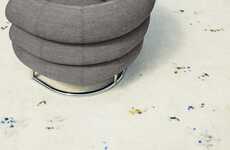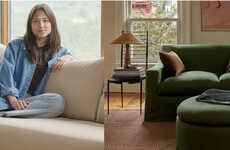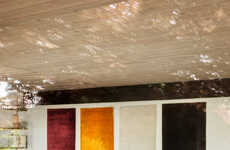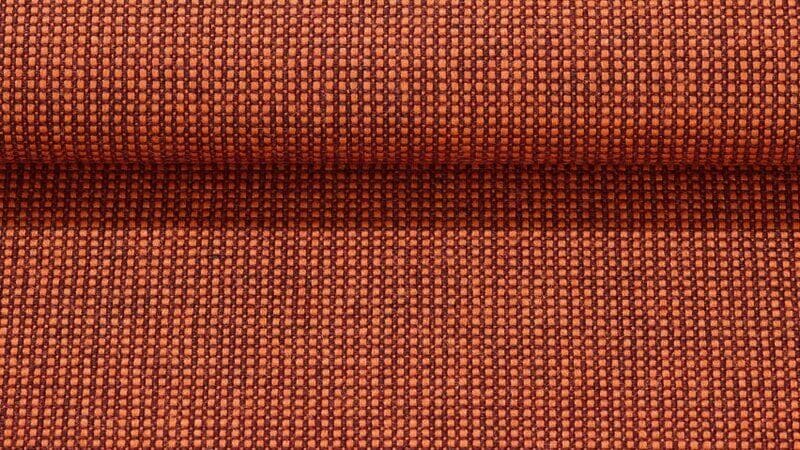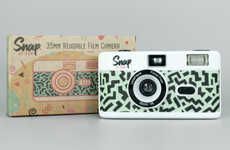The Sabi Woolen Upholstery Textiles is Designed by Danish Brand Kvadrat
Elena Rahman — November 10, 2021 — Art & Design
References: kvadrat.dk & dezeen
Sabi is a series of woolen textiles created by the Danish brand Kvadrat. The brand plays with the perception of color, textures, and layers through its new upholstery series.
Louise Sigvardt is the lead designer for the new series. Based in Copenhagen, Sigvardt created the Sabi collection based on a traditional dobby weave. The textiles in the series are crafted with yarn made from virgin wool as well as post-industrial recycled wool to bring the industry one step closer to a sustainable future.
The virgin wool used in the textiles provide colored thread, while the recycled wool, sourced from UK yarn spinner WOoltex, is dyed in darker tones. This method creates a dynamic depth in the textile's composition.
Image Credit: Kvadrat
Louise Sigvardt is the lead designer for the new series. Based in Copenhagen, Sigvardt created the Sabi collection based on a traditional dobby weave. The textiles in the series are crafted with yarn made from virgin wool as well as post-industrial recycled wool to bring the industry one step closer to a sustainable future.
The virgin wool used in the textiles provide colored thread, while the recycled wool, sourced from UK yarn spinner WOoltex, is dyed in darker tones. This method creates a dynamic depth in the textile's composition.
Image Credit: Kvadrat
Trend Themes
1. Sustainable Upholstery Textiles - There is an opportunity for companies to create sustainable upholstery textiles by incorporating post-industrial recycled wool.
2. Dobby Weave Textiles - Dobby weave textiles can be used to create intricate and visually appealing designs, providing opportunities for textile makers to experiment with color, texture and layering.
3. Virgin and Recycled Wool Blended Textiles - Blending virgin wool with post-industrial recycled wool creates a dynamic depth in the textile's composition and allows for use of sustainable materials in textile production.
Industry Implications
1. Textile Manufacturing - Textile manufacturers can consider the use of post-industrial recycled wool in their production processes to create sustainable textiles, promoting eco-friendliness.
2. Furniture Manufacturing - Furniture manufacturers can benefit from using unique and visually appealing upholstery textiles to differentiate their products in the market.
3. Fashion Industry - The fashion industry can explore the use of virgin and post-industrial recycled wool blended textiles to produce sustainable and eco-friendly garments.
1.1
Score
Popularity
Activity
Freshness
